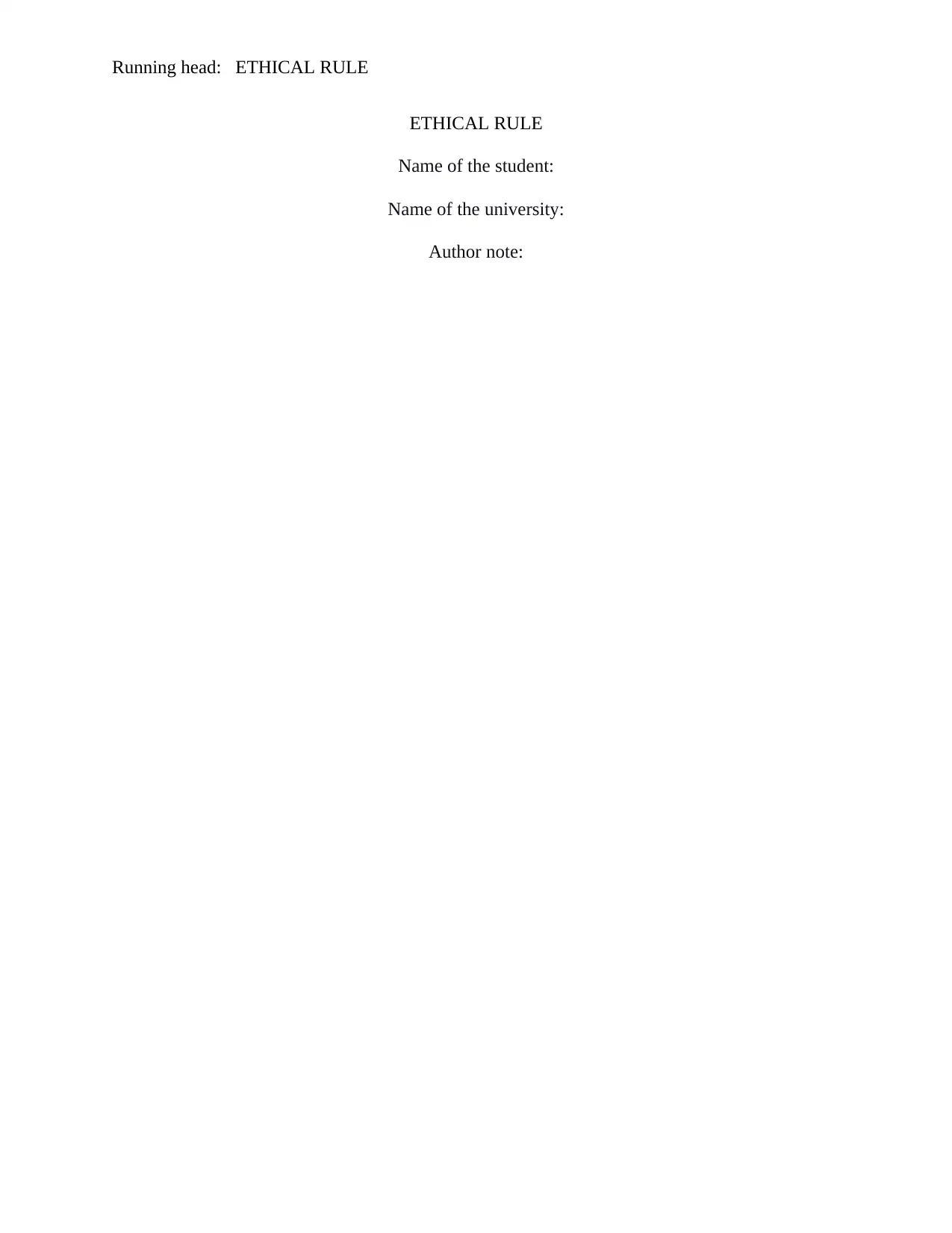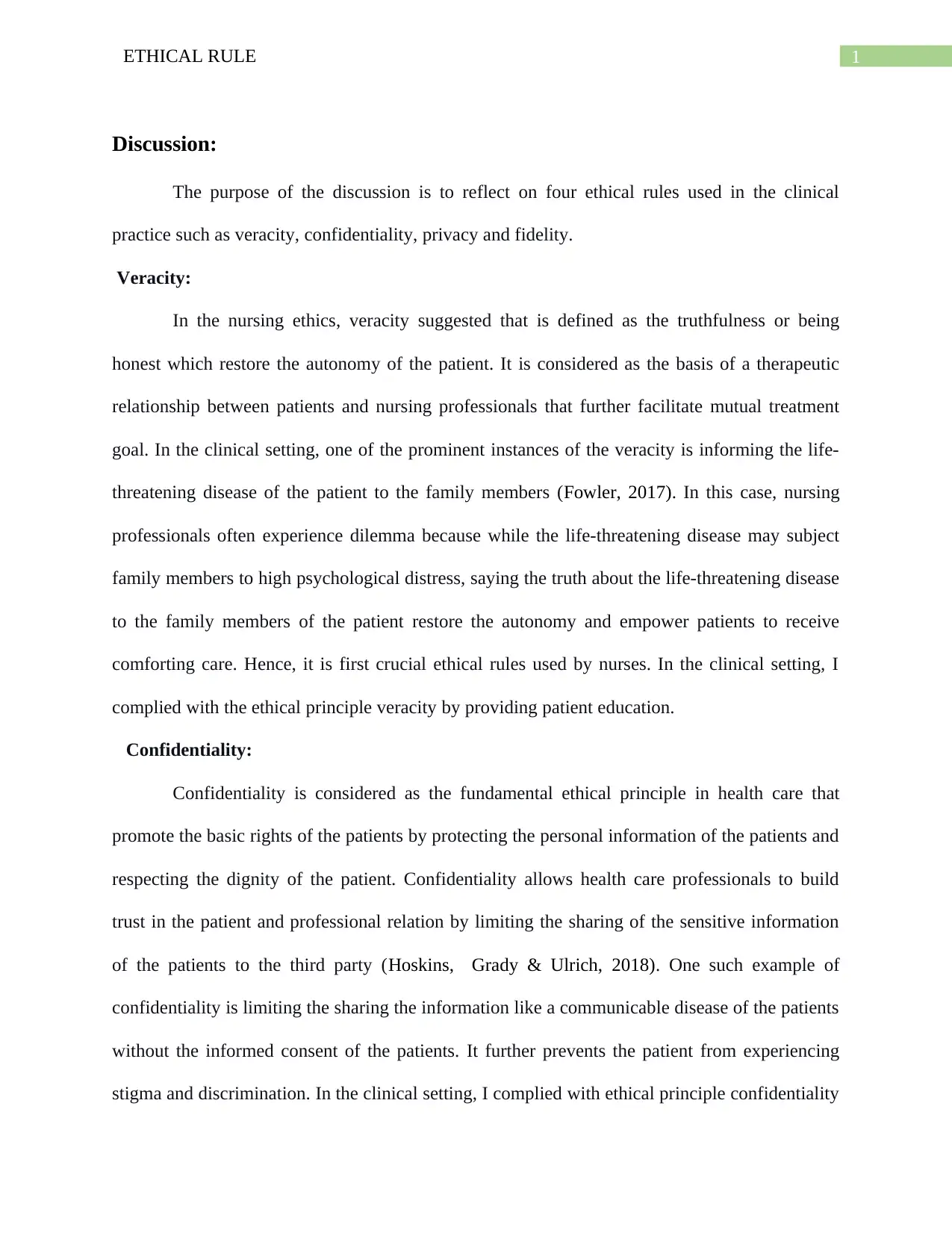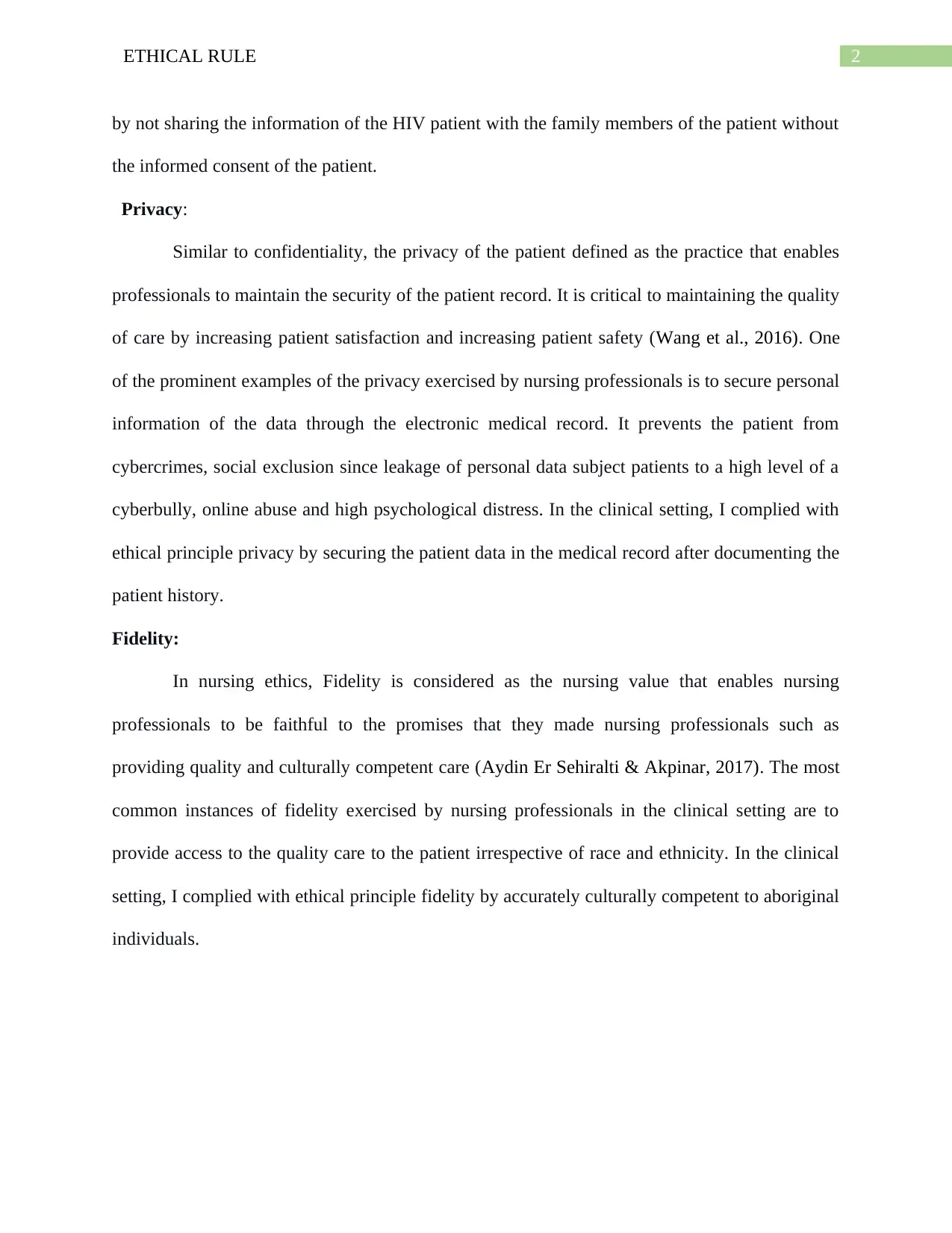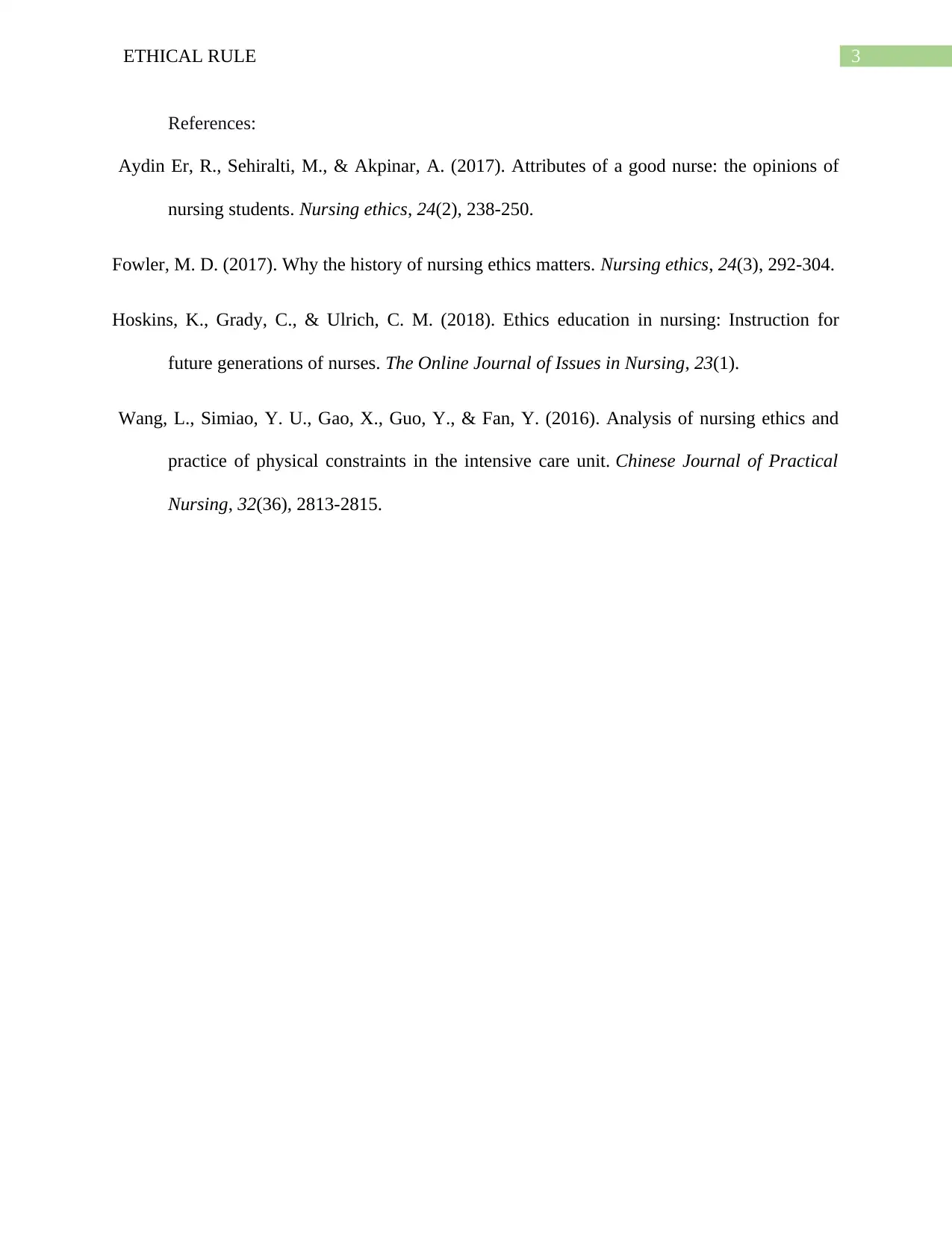Discussion: Ethical Rules in Clinical Practice - Nursing Ethics
VerifiedAdded on 2022/08/14
|4
|754
|32
Essay
AI Summary
This essay delves into four essential ethical rules in clinical practice: veracity, confidentiality, privacy, and fidelity. Veracity, the principle of truthfulness, is examined in the context of informing patients and their families about diagnoses, highlighting its role in patient autonomy and the nurse-patient therapeutic relationship. Confidentiality, a cornerstone of healthcare ethics, is discussed regarding protecting patient information and building trust, with examples like managing communicable diseases. The importance of patient privacy, including securing electronic medical records, is also explored, emphasizing its impact on patient satisfaction and safety. Finally, fidelity, the commitment to promises made by nurses, is analyzed in the context of providing quality and culturally competent care. The essay includes real-world examples of how these ethical principles are applied in clinical settings, along with relevant references.
1 out of 4










![[object Object]](/_next/static/media/star-bottom.7253800d.svg)